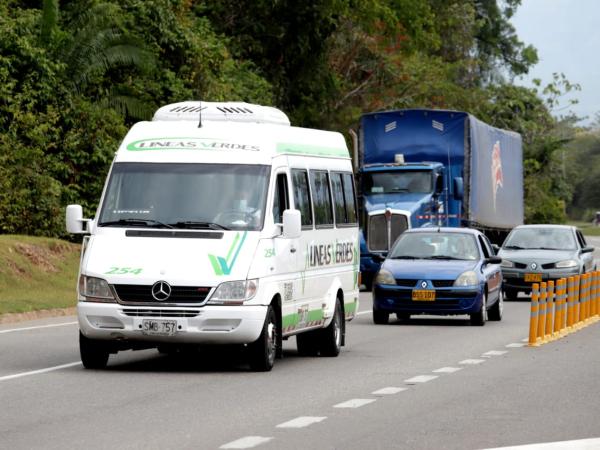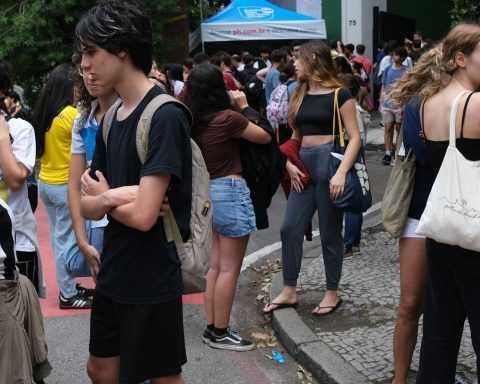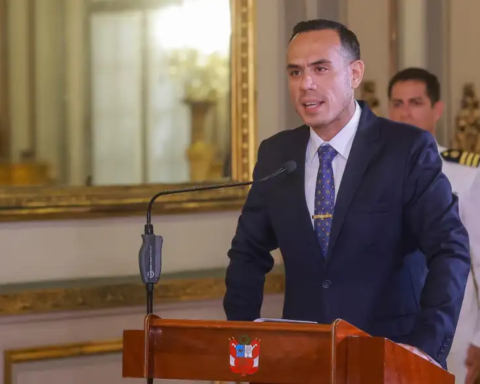
The “unicameralist” attack on the Constitutional Convention (CC) by the Broad Front (FA) and the Communist Party (PC), both grouped in Approve Dignidad – one of the two poles of the ruling party in the incoming administration – has generated an important degree of distrust in the other pole, that of the former Concertación (without the DC) that will also be part of the new government. Beyond the conflicting views regarding whether the Upper House should be touched more or less deeply, various sources warned that, considering the precarious weight that Gabriel Boric’s administration will have in the Senate, trying to take away power without having held a more deep could result in a governance risk, since in real terms – as they wanted to put it – from annoyance, more than one could pass to frustration.
More than a threat, democratic socialism tried to present it as a reality. This, because although everyone is aware that modifications to the Senate, as it is known today, are going to arrive yes or yes –if the exit text is approved–, the Corporation would likewise have at least between one or two years of operation, that is, the time it takes Parliament to adapt the potential new Constitution. In this framework and considering that the new government has already declared the tax reform its battle horse, not having everyone aligned could become a no less problem.
And it is that if all the representatives from the Christian Democracy to the left are added, the elected Government has barely 50 percent representation, and if the efforts are put into convincing a sector of Chile We are going to advance with the agenda reformist, with the complications that this entails, also having to think about getting one or another off the hook on the bandwagon, would transform the efforts into much more complex ones.
In this scenario, and although there was no transversal coordination in defense of the Corporation, the community called to take charge of what happens in the Constitutional Convention is the PS, mainly due to its weight in the three spaces where the game is played. right now: the House of Representatives, the Senate and also the Convention. Added to this, the fact that its conventional members of the Political System Commission gave the go-ahead in the first place to the creation of the so-called Territorial Council, which did not consider a legislative initiative and focused mainly on regional issues, a situation that ignited in the sector all alarms.
In this way, and in an attempt to moderate the changes, once the proposal was known, and with several calls between incumbents and the board, they came to the conclusion that the way to act should be cautious, that is, avoid personalized calls that could later bring as a secondary effect an eventual break or accusations of interference in the autonomous body. In this way, it would have been decided to act through pressure through the press to make their position clear and, in this way, try to lower the prevailing temperature in the sector.
Within the coordination, the first of the voices that was present was that of the outgoing senator Rabindranath Quinteros, who by not exercising his position during the next period, they pointed out, avoided immediate questioning that would point to a corporate defense of the incumbents. In interview with Thirdthe parliamentarian pointed out that “the PS is not in favor of eliminating the Senate. In the caucus we have never talked about it. Who is Montero? It is a mistake to take away powers from the Senate, which is the reviewing Chamber.” Then came the onslaught of the elected senator Juan Luis Castro, who on radio Pattern gave ground to the senator’s statements, indicating that “no, he does not represent you and I tell you this with great responsibility, because I have dialogued with high-level leaders of the PS, and I can say, with full responsibility, that what was agreed by the Constituent Socialist Collective does not represent the approach of the Socialist Party”.
This second reaction came after the words of the Convention for the Socialist Collective, Ricardo Montero, coordinator in addition to the commission, who had assured that the position of the representatives of the PS in the Convention was indeed representative of the party.
In the midst of this mess, the also outgoing senator, José Miguel Insulza, called a non-institutional meeting via Zoom, where some parliamentarians and also conventional members participated. Some of those present assured that the meeting took place in a calm tone and broad debate, where the explanation given by some of the conventionalists would have been that at the time the majority of the Convention was in favor of unicameralism, and that their vote would have been given “in a transactional framework”.
PS sources added that in reality there is no resolution on the part of any instance of the party that ensures something regarding bicameralism, beyond the fact that the majority would be for that option, so it was impossible to accuse them of missing some kind of institutional principle.
For now, the intervention would be delivering certain results, since the discussion led to a new negotiation, promoted by the Socialist Collective and that seeks to moderate the primary proposal.
It should be remembered that the PS has 14 conventional members, three within the Submission of Political Systems, 13 deputies and four senators, being the most powerful individual bench of the future ruling party.
In the case of the current opposition, and future ruling party, there are not a few who have targeted the political team of the future government for – they accuse – not considering them in what they point out as “the big decisions”. All those consulted were incredulous of a merely independent act of the conventional representatives of Approve Dignity. “If it is not through a direct conversation, it is that they are allowing things to be done, which is the same thing, and we were not considered,” they added from the sector. In this way, a train wreck was generated between the two sectors in charge of giving political support to the future administration on a far-reaching issue.
It is known that both worlds do not reconcile neither in the timing nor in the depth of the reforms, beyond the guidelines delivered by the President-elect himself, Gabriel Boric. And there are not a few who remember from side to side that, beyond the approaches, this is finally a “marriage of convenience”, since the sector that groups the PS, PPD, PR and PL ended up entering the Government for ” necessity” rather than the “conviction” of those who supported the candidacy of the elected President.
All in search of a minimum legislative floor to be able to give traction to the promise of the government program. Adding all the forces that will govern, they do not reach a simple majority in the Chamber, and barely half in the Senate.
no more senate
But beyond the debate that can take place within any of the parties or groups, there is a maxim that can hardly be twisted, and that is that the Senate, as it is known today, will be no more.
And although at first, both the Broad Front and the PC opted for the unicameral system, finally arriving – after an extensive negotiation – at the so-called asymmetric bicameral system, with votes from the PS, it would not have any chance of surviving in the plenary session either. which will review the report of the Political Systems Commission.
This formula considered not only the change of name of the corporation to the Territorial Council, but also reduced legislative powers, such as the initiative of bills, and the endorsement of the same, as is currently the case. In addition, it reduced its work to mainly regional issues and the annual budget.
That bet that at some point seemed to be consolidated, had to be qualified again, mainly after the pressures that several constituents have accused of what they called the powers that be. This was done by the former vice president of the convention, Jaime Bassa, who in an interview with Emol accused that “we saw materialize an issue that we have been feeling in the air in recent weeks, which is the pressure of the factual powers, of the powers constituted on the constituents, especially those who come from political parties that have historically exercised political power in the country”.
On Tuesday in committee, an indication was approved that erases the concept of unicameralism, in addition to replacing the Territorial Council with a Territorial Chamber, once again approaching a bicameralism more similar to what is known today.
In any case, several of the indications still need to be voted on – 760 in total – but the proposal, which would have a principle of transversal agreement, gives greater powers to this chamber, managing to resume the type of bicameralism that the former Concertación has demanded hard . This would be “Know the projects of constitutional reform, of interpretive laws of the Constitution, of the annual budget law, of the law on the political and administrative division of the country, of the law that affects the competences of the regions, of the law of popular votes and the electoral system.
corporate defense
The discussion regarding a more or less profound change in the legislative system has led several of the incumbents, whether they are current senators or recently elected, to speak out on the matter.
In this way, the current president of the upper house, the DC, Ximena Rincón told La Tercera that “I do not think that a generation can assume the power to refound the Republic built by many generations for more than 200 years (…) a mistake for the functioning of democracy.
Also DC, Matías Walker, who will take office in the Senate on March 11, warned that what was being voted on in the Convention was a “de facto unicameralism with very limited powers for the Territorial Council.” He adding that he was declaring himself a supporter of the Senate.
Once the initiatives began to be voted on in plenary, it became clear that two-thirds ran from the center to the left, where the right-wing conventionalists, representatives of both Chile Vamos and the Republican Party, placed themselves in the sole option of rejecting the proposals, did not have the necessary influence to “lock the ball” considering that its 36 representatives do not reach the third required to veto.
On this side of the street, the historic senator of the UDI, Juan Antonio Coloma, has also spoken about it, indicating that “the role of balance and counterweight to the Executive Power” would be transgressed. The senator and president of RN, Francisco Chahuán, also did it, who in an interview in El Dinamo accused that they want to “erase with the elbow what has been a key institution in the institutional and democratic stability of the country.” In addition to “attack against tradition”.

















